2021 Releases
Release 21.12.0 - 2021-12-15
Added
- Activations can now be skipped if their content did not change since the last activation. This feature can reduce the volume of activation events made for a destination.
Changed
Additional segment insights are now available while creating segments. These further detail the audience being created regarding a multitude of metrics that help assess the quality of the audience.
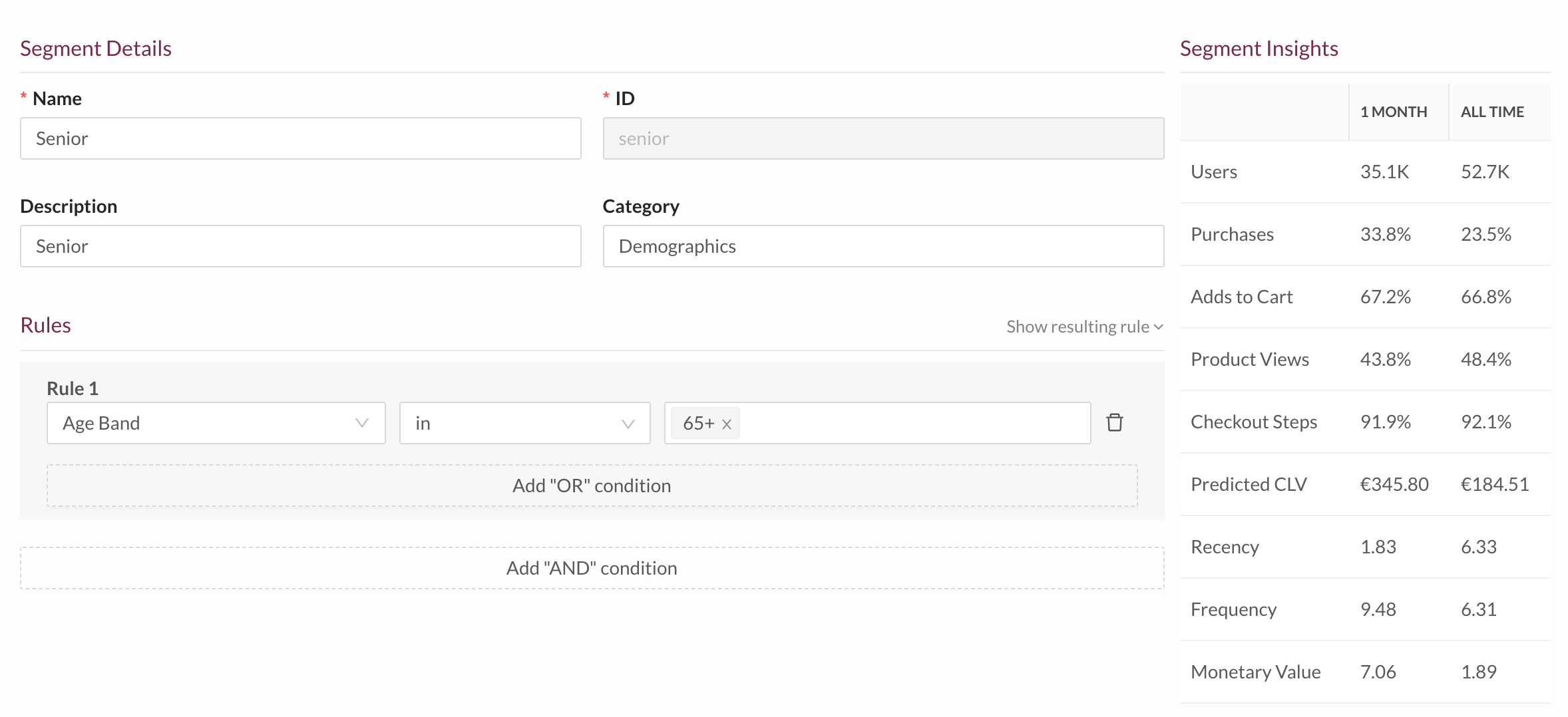
Several visual and usability improvements.
Release 21.11.2 - 2021-11-29
Added
While importing orders from files, user IDs are validated, preventing invalid data from being added to user profiles.
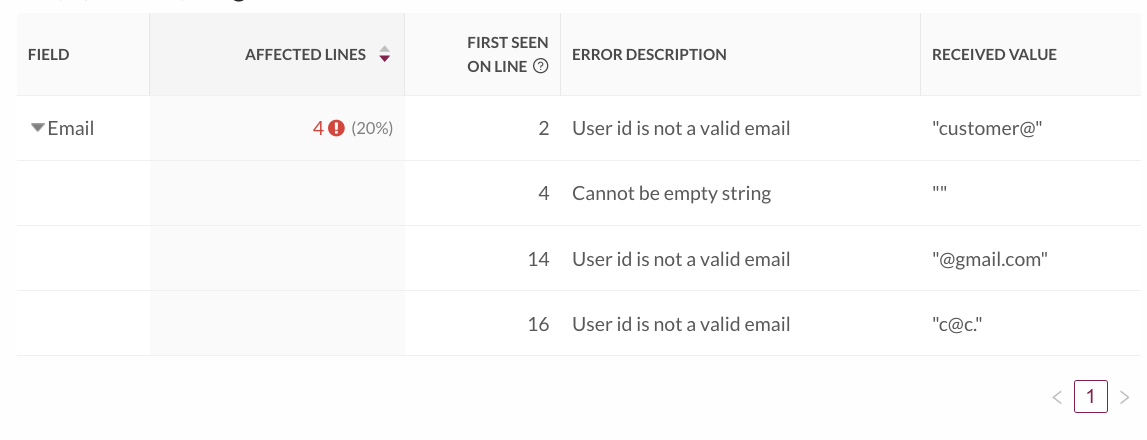
New integration with Klaviyo for email marketing. This integration enables sending segments as user attributes to Klaviyo, which can be used for email marketing campaigns. Read more.
Changed
- The plaintext email ID type
emailhas been made available for all clients. Gathering plaintext email IDs is optional but required for some email integrations. Read more.
Release 21.11.1 - 2021-11-15
Fixed
- Prevent the removal of unused segment rules while calculating segment reach.
- Minor visual improvements.
Release 21.11.0 - 2021-11-02
Changed
- The E-goi email integration validates the API key during creation and edition, preventing invalid configurations.
Removed
- The deprecated segmentation by product category has been removed. All legacy segments have been migrated to the newer hierarchic category segmentation strategy.
Release 21.10.1 - 2021-10-18
Fixed
- Improvements for the E-goi integration, coping with unavailable server errors and contacts with empty fields.
Release 21.10.0 - 2021-10-06
New
- New integration with E-goi for email marketing. This integration enables importing contacts from an E-goi list, and then attaching tags to those contacts, enabling marketing campaigns. Read more.
Fixed
- Fixed an issue preventing the download of files resulting from a file drop activation.
Release 21.9.0 - 2021-09-06
New
- New ID types for tracking hashed phone numbers:
phone_sha256andphone_sha256_unreliable. Read more.
Changed
- Improved UX for segmenting by product category hierarchically.
- Increased the sample size used for estimating user reach while creating segments.
Release 21.8.1 - 2021-08-23
Changed
The ID reach table now uses the verbose name to identify each ID type, instead of the internal ID code name (e.g. Email SHA256 vs
email_sha256).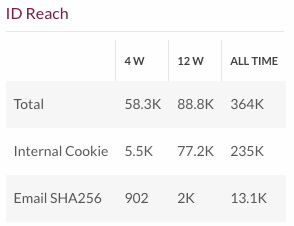
Fixed
- When a metric is loading on the dashboard, it now shows a spinner until the value is available. It defaults to
--when the value is temporarily unavailable. This fixes the issue of showing0as the default value for a metric while loading its value. - Fixed an issue where some time-based segments were not showing their date intervals on the segment building interface, while the rule was still properly set.
Release 21.8.0 - 2021-08-09
New
Product segmentation can now leverage hierarchic product categories. Selecting a parent category will automatically include all sub-categories. Please update your tracking of product-related events to track categories as an hierarchic list of categories using
categoriesList, instead ofcategories, as exemplified on the documentation.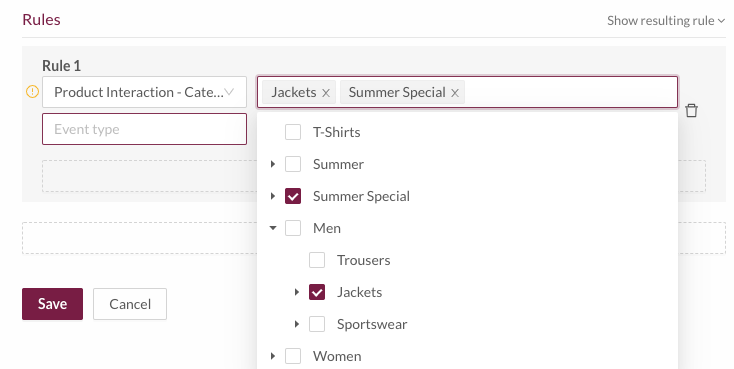
Changed
- Facebook Conversion API no longer automatically forwards events. Instead, the tracking tag must be explicit on the details of the event to forward to Facebook. Data to send to Facebook should be included in the
facebookConversionTrackingproperty when tracking events, as documented here. - Product-related events can have a
discountproperty, as examplified on theproductViewevent.
Fixed
- Improved how an event referrer is shown on the dashboard, fixing an issue that could discard part of the URL.
Release 21.7.1 - 2021-07-26
New
- Support for a new event type for tracking interaction with content. Learn how to use it on the
contentViewevent documentation.
Release 21.7.0 - 2021-07-12
New
An error report is now available with the imports for order history. It identifies how many orders were successfully imported, and not, along with the errors observed in the imported file. This report can be forwarded to the person responsible for generating the orders file, to help identify errors in the file generation process.
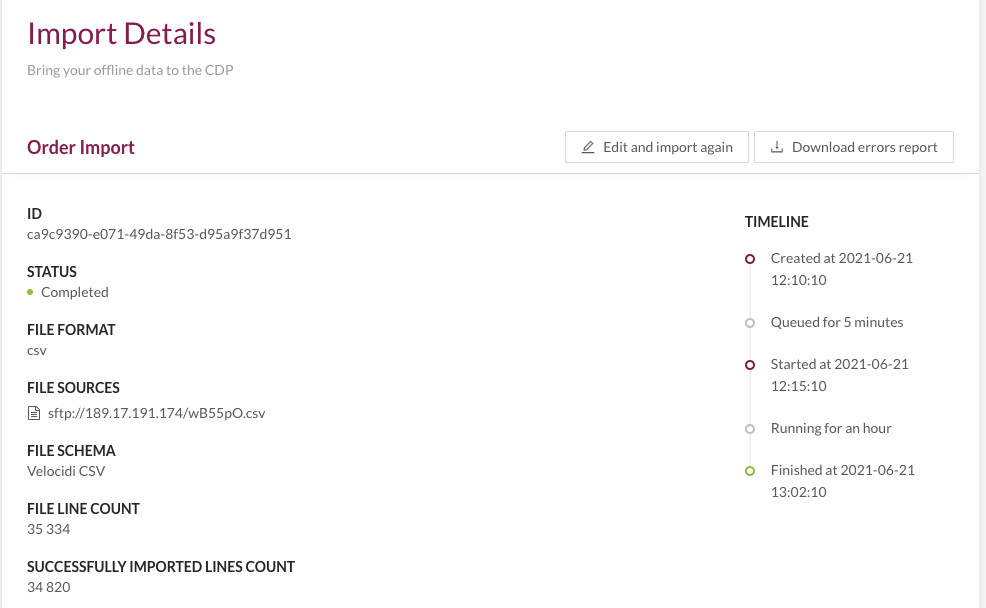
The Facebook Conversions API destination now supports forwarding new events types:
productView,checkoutStep,login, andpageView. It is also possible to select one additional ID from the user to forward an External ID to Facebook.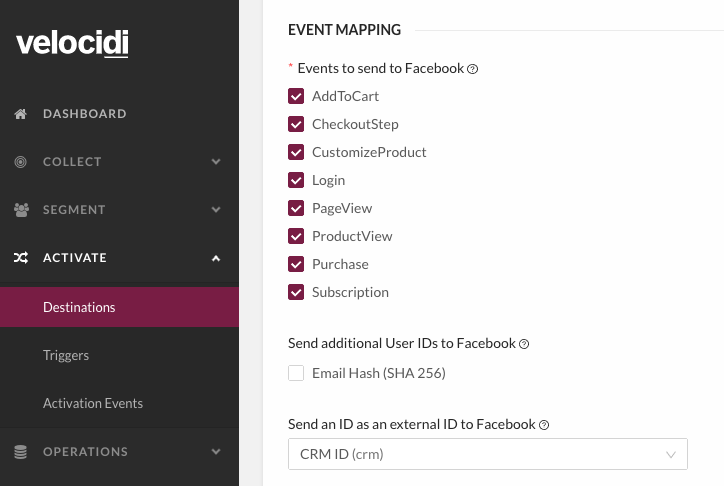
Fixed
- Improve how CLV predictions are calculated in attribution reports, fixing an issue with time aggregation that could render less accurate predictions.
Release 21.6.1 - 2021-06-28
New
Calculate Recency, Frequency, and Monetary Value (RFM) for last year and all time, supporting segmentation that considers the whole order history, or just the more recent (1 year) customer interactions.
Generate aggregation attributes for all event types, including
customevents, enabling segmentation by event counts or when they happened. Learn more.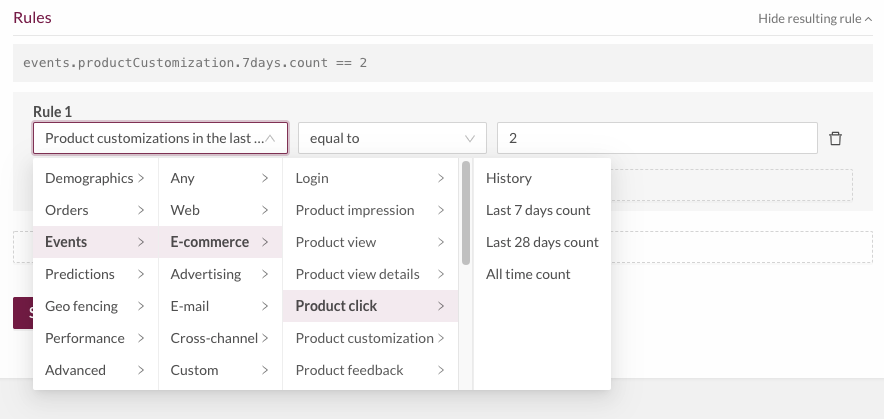
Unreliable IDs can now be selected for activation in compatible destinations.
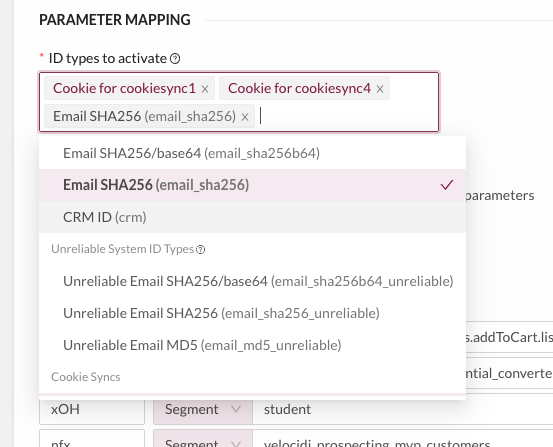
Added the number of destinations in which a segment is being activated to the segments table, as well as show in the segment details the list of destinations where the segment is being used.
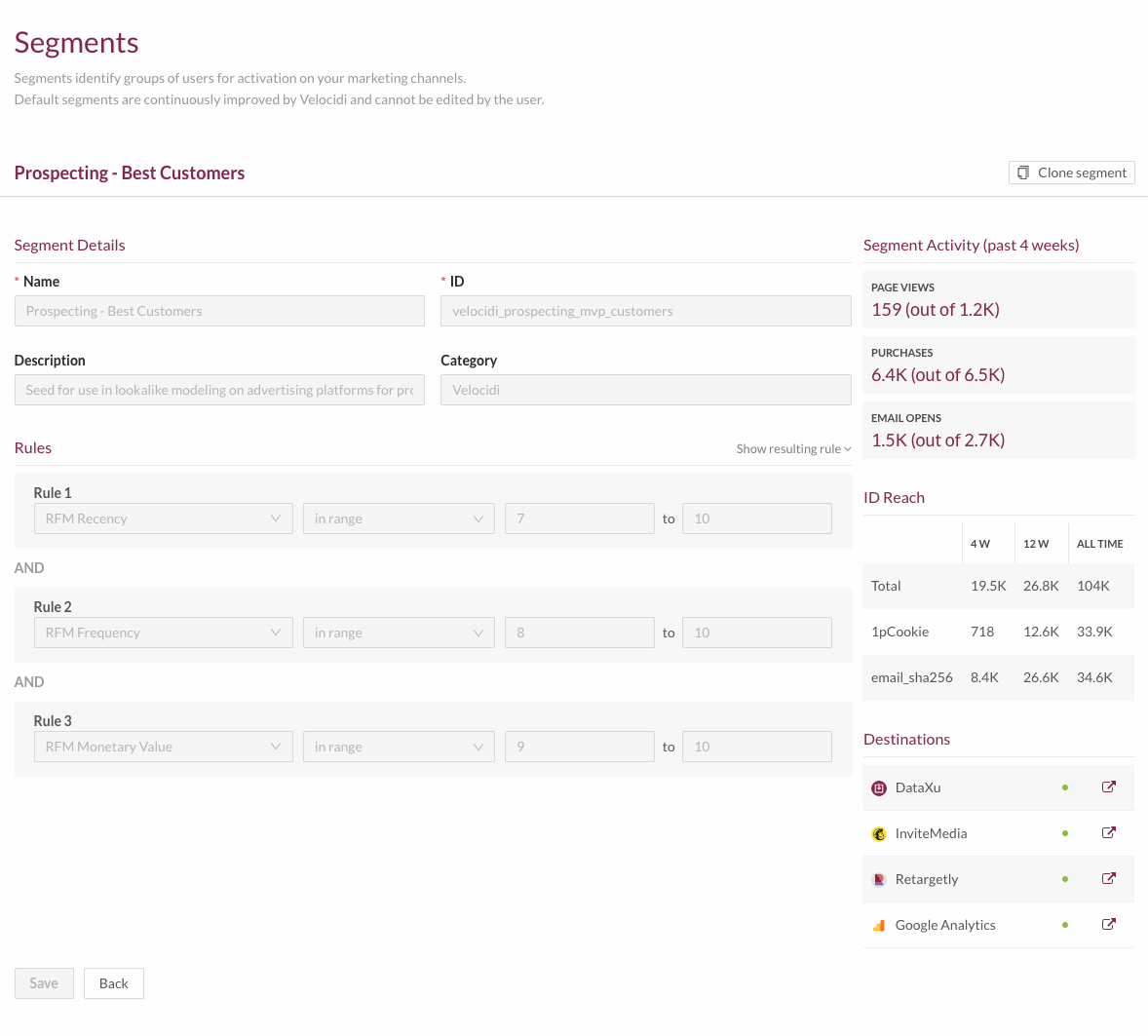
New boolean operators to verify if an attribute is true or false. These can used to test boolean fields obtained from a customer data import.
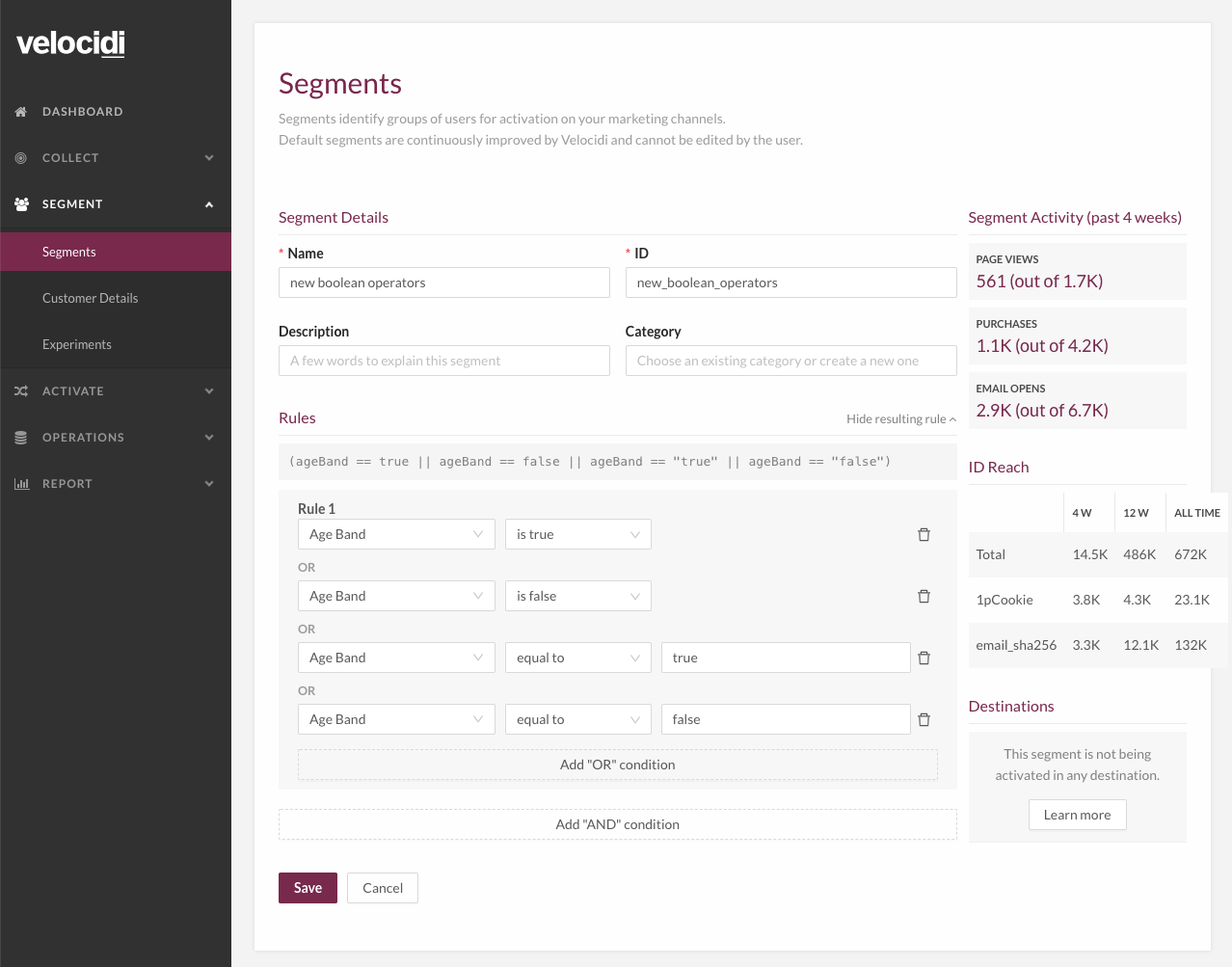
Changed
Email and hashed email ID types are now validated. Events identified with invalid IDs will not update any user profile. Invalid IDs in match requests will also be discarded. If the match request provides valid and invalid IDs, the valid IDs will be matched for that user, while the invalid will be discarded.
Use the value of
window.location.hrefto identify the current URL address, instead of the referrer, due to the Referrer-Policy limitation introduced by Chrome 85. This ensures that tracking events continue to capture URL parameters, and not only the domain address.
Release 21.6.0 - 2021-06-14
New
Self-service order history imports, with support for Shopify CSV, and the custom Velocidi CSV and JSON file formats. The orders file can be imported as a dry-run to validate the data in the file before the actual import.
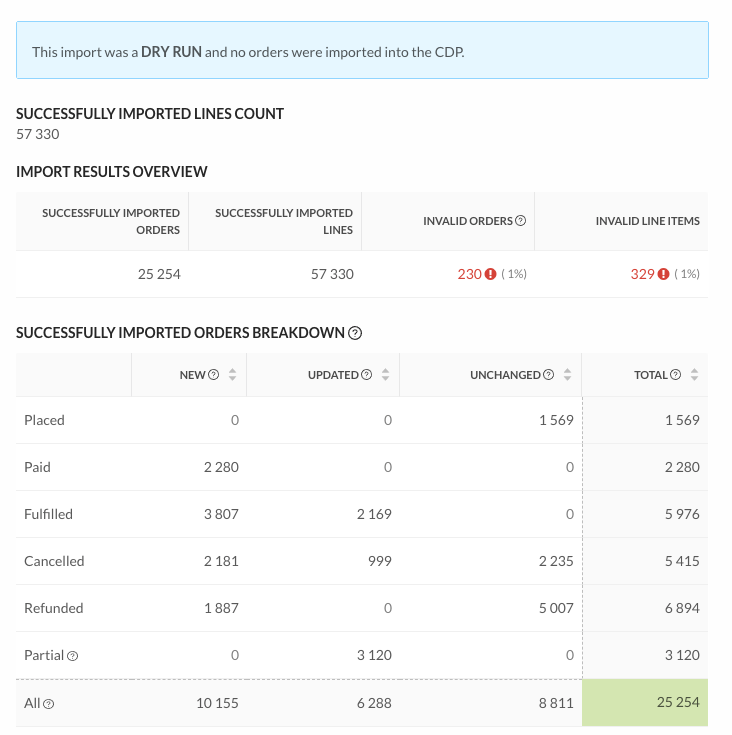
Changed
In the product schema used for capturing events, the
productTypefield has been renamed tocategory. Both field names will be supported during a migration period.Orders without line items show
No statusas status and clarify that there are no line items on the order.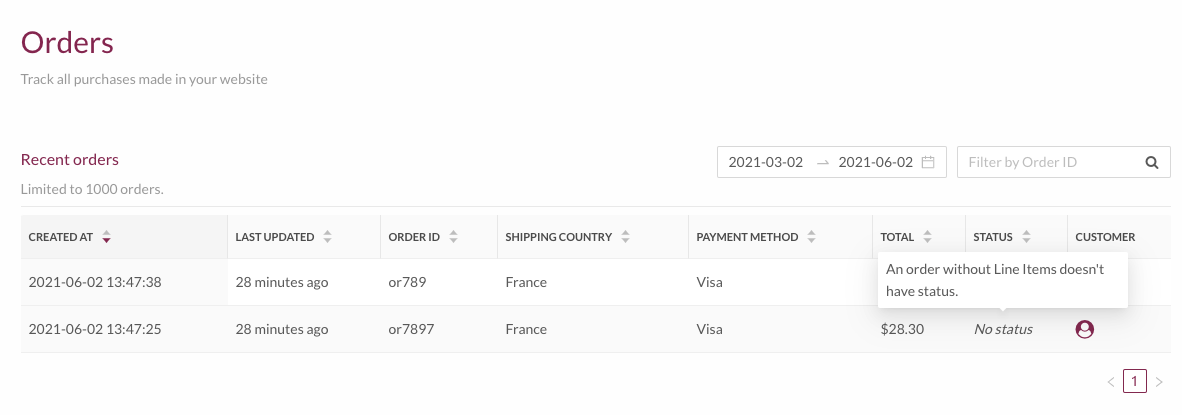
Fixed
On the segments table, while hovering a segment name and showing its description, show a message stating that a segment has no description instead of an empty tooltip if the segment does not have a description.
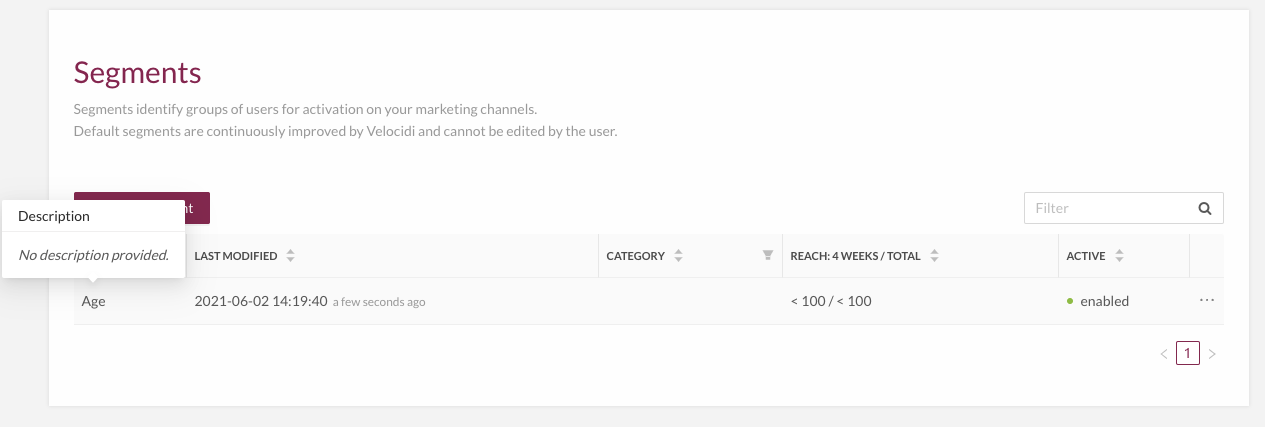
The next purchase date predictions now consider orders from the previous 20 years for training the prediction model, up from using the previous 3 months. This change will provide more realistic predictions, which are aligned with the whole purchase history of a user, instead of using only recent purchases.
Fixed an issue preventing the segment reach from being updated if changes were made to the segment definition while the reach for the previous definition was still being processed.
Fixed a discrepancy in the reach shown on the segments table and the segment creation form.
Release 21.5.2 - 2021-05-31
New
CDP administrators now have a link to access the users' management interface, where they can add or remove users.
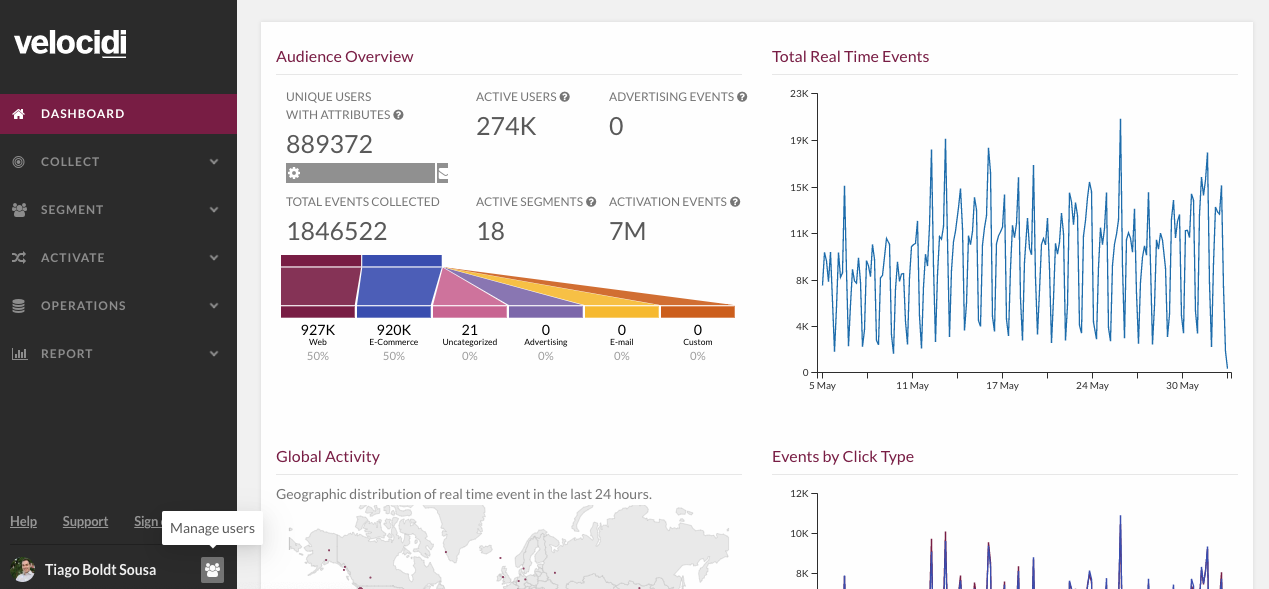
Enable segmentation by users who made specific events in a given time frame.
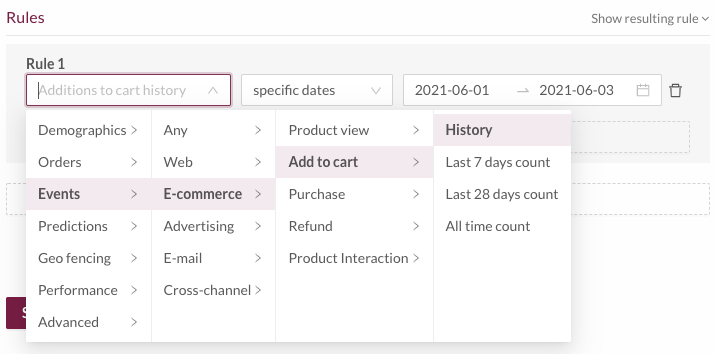
On the customer journey, show the status for an order, considering the order's line items. You can read more about
orderPlaceevents and their status on the documentation.Support for identifying users with unreliable IDs. These IDs will be available for activation for the user, but will not be used to merge the user profile, as their source is unreliable. Read more about the new ID types in the documentation.
Improved
Segments table now shows more relevant information, namely the last modified time and the segment description on hover on the segment name.
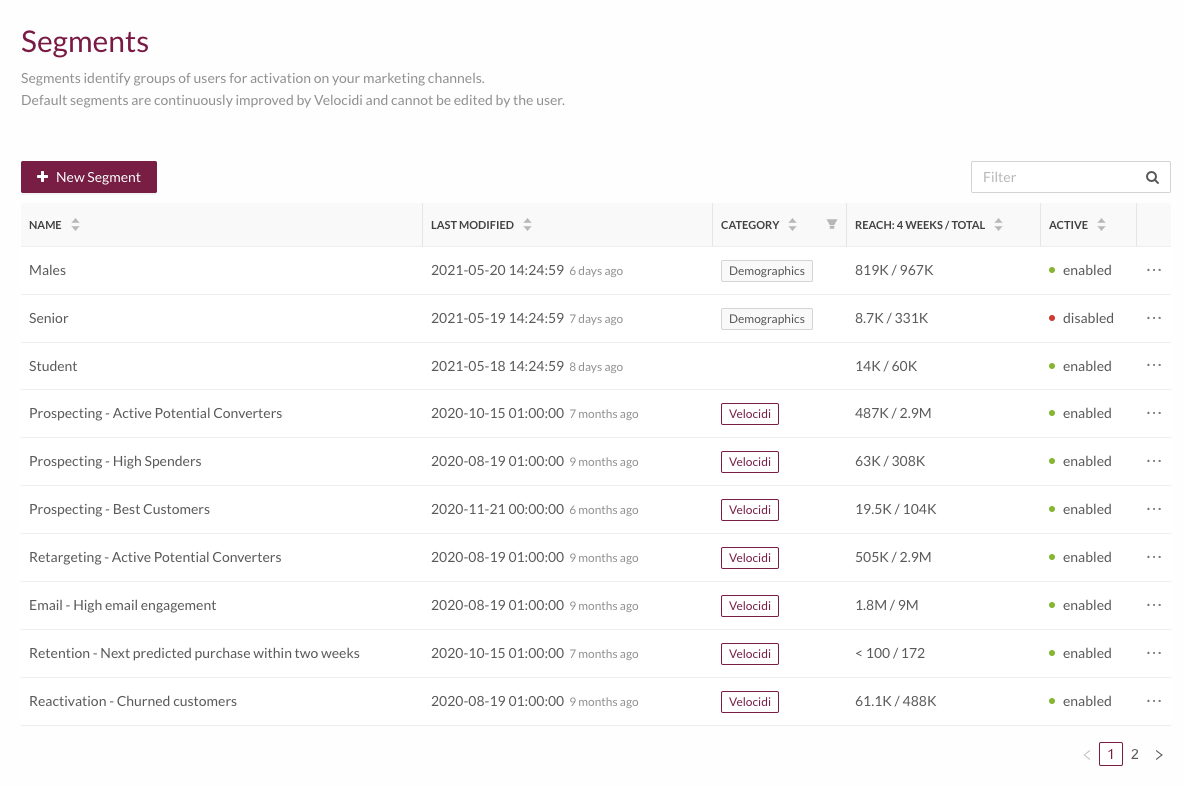
Release 21.5.1 - 2021-05-17
New
- A new Event Health Dashboard overviews the tracking event errors arriving at the system.
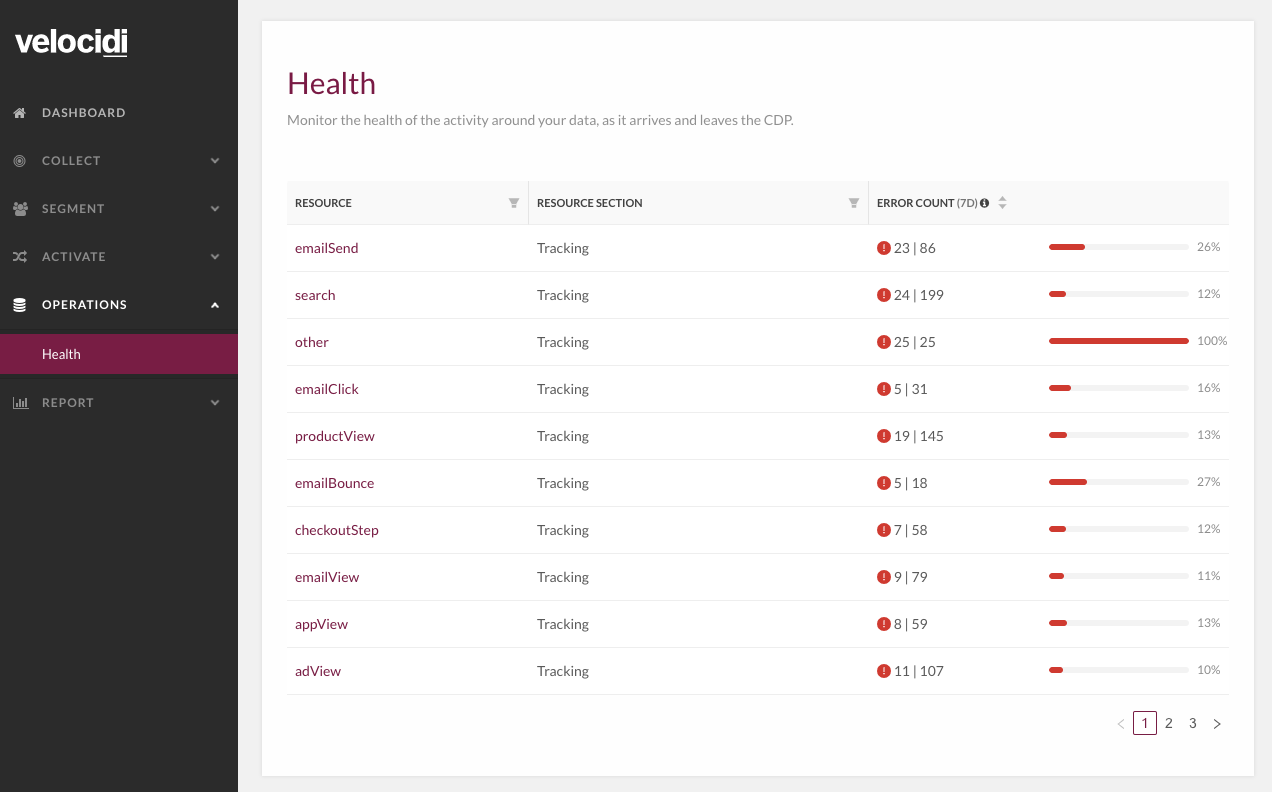
- The order history can now be filtered by order ID.
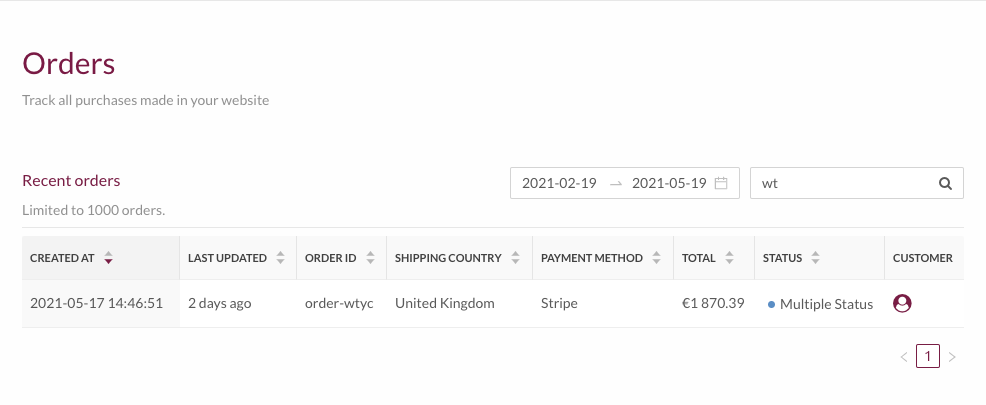
Improved
- Fixed how the ID Match errors were being counted, which was not considering some errors.
- Fixed the Facebook Conversions API integration to only send an email hash to Facebook if explicitly configured.
Release 21.5.0 - 2021-05-03
New
- Integration with Facebook Conversion API, enabling reporting
AddToCart,CustomizeProduct,Purchase, andSubscriptionevents to Facebook.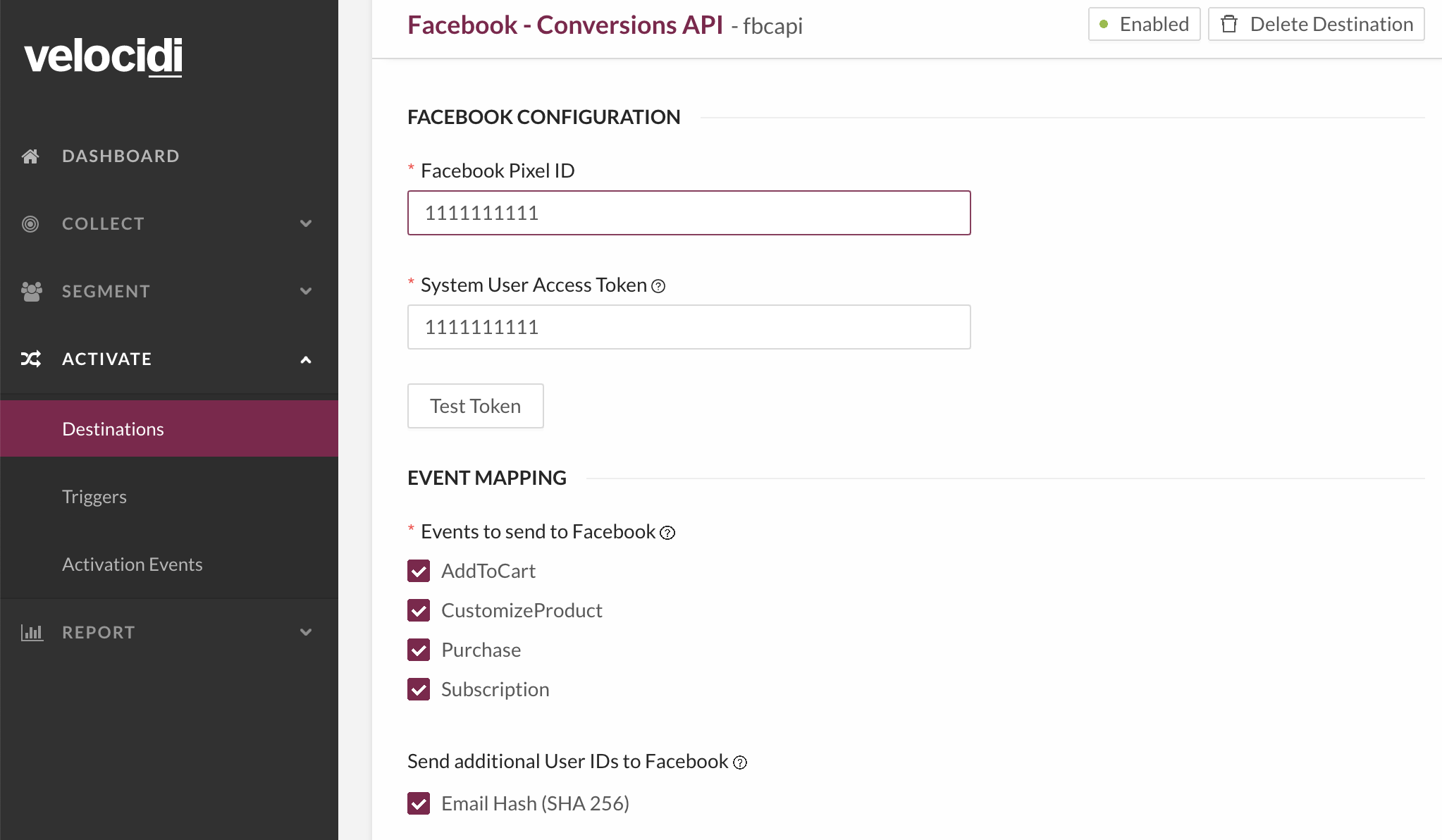
- Customer details show the number of orders and orders with refunds or canceled line items. These are also shown on the
Orderstab.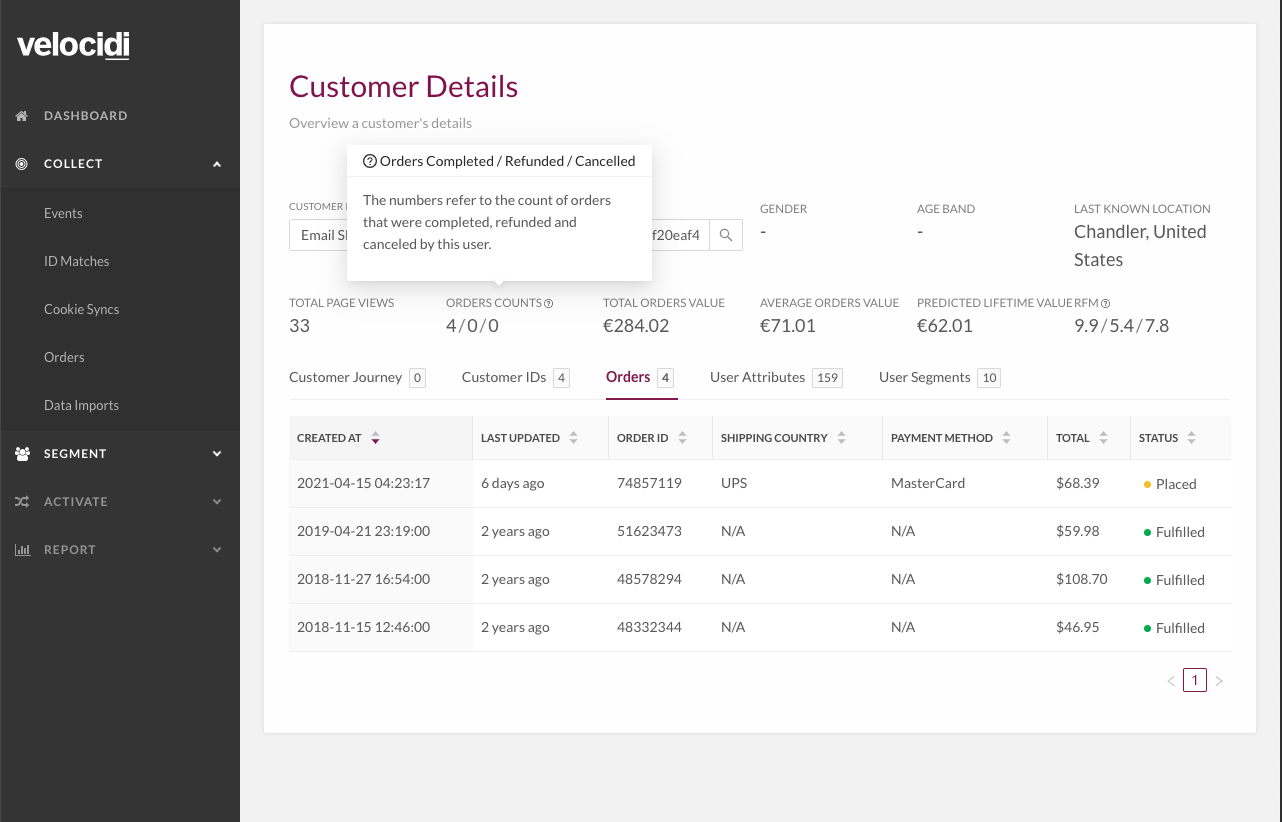
- Show the order ID as the second header on an order details page.
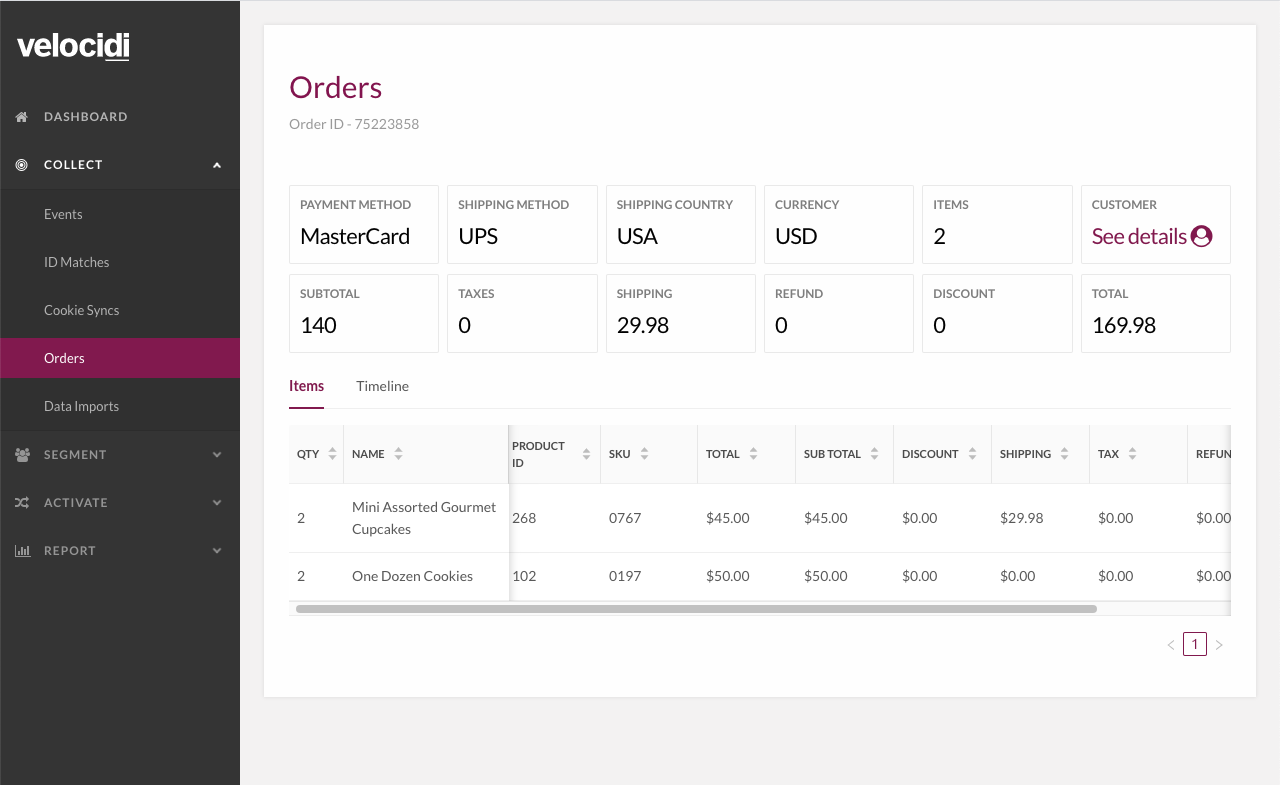
Changed
- Event error handling can now identify more events with errors and provide additional feedback on them. The example below shows a price received as an object, instead of a decimal (double) value.

Release 21.4.1 - 2021-04-19
New
Date filters are now persistent across pages. When applying a filter, if you follow a link and then go back on the browser, the date filters will still be applied.
The events collect table can now be filtered by events with errors.

A new custom field
listis available for segmenting by product interaction.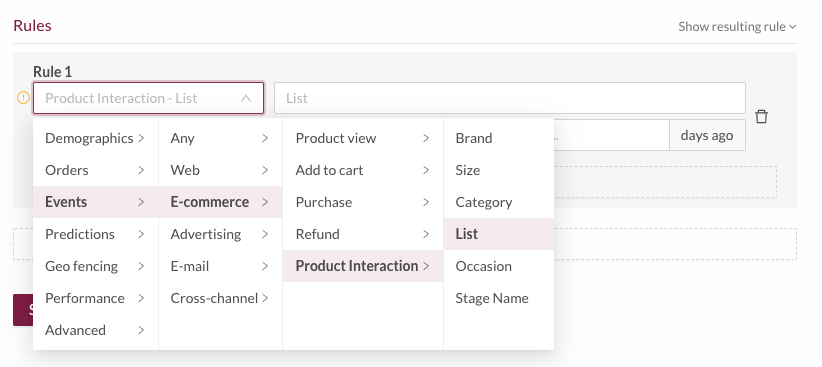
Changed
While creating segments, ID reach now shows the reach for the past 4 and 12 weeks, along with the all time reach, which considers all user data in the system.
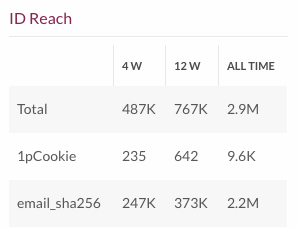
Segmentation rules regarding orders now use order attributes, which consider the order imports.

When viewing the details of an order, it is now possible to see, in the "QTY column", how many items of each line item were purchased.
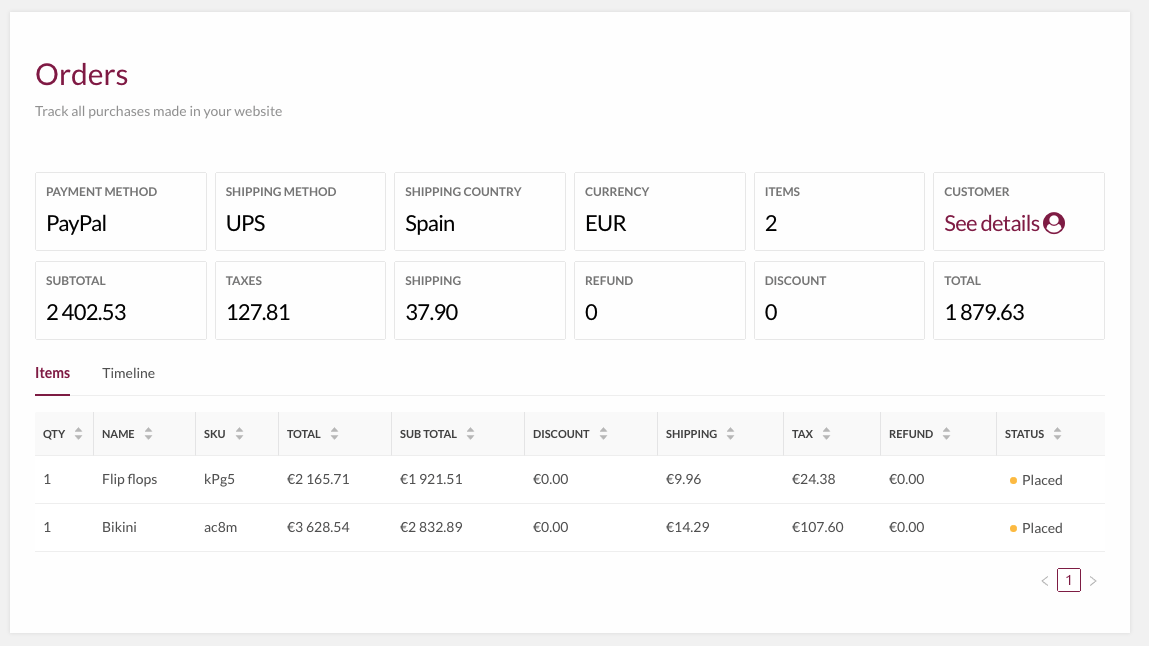
Fixed
- Fixed a bug that sometimes prevented the New Experiment page from opening.
Removed
- Removed the lift reports.
Release 21.4.0 - 2021-04-05
New
- Order timeline entries related to events now link to the respective event.
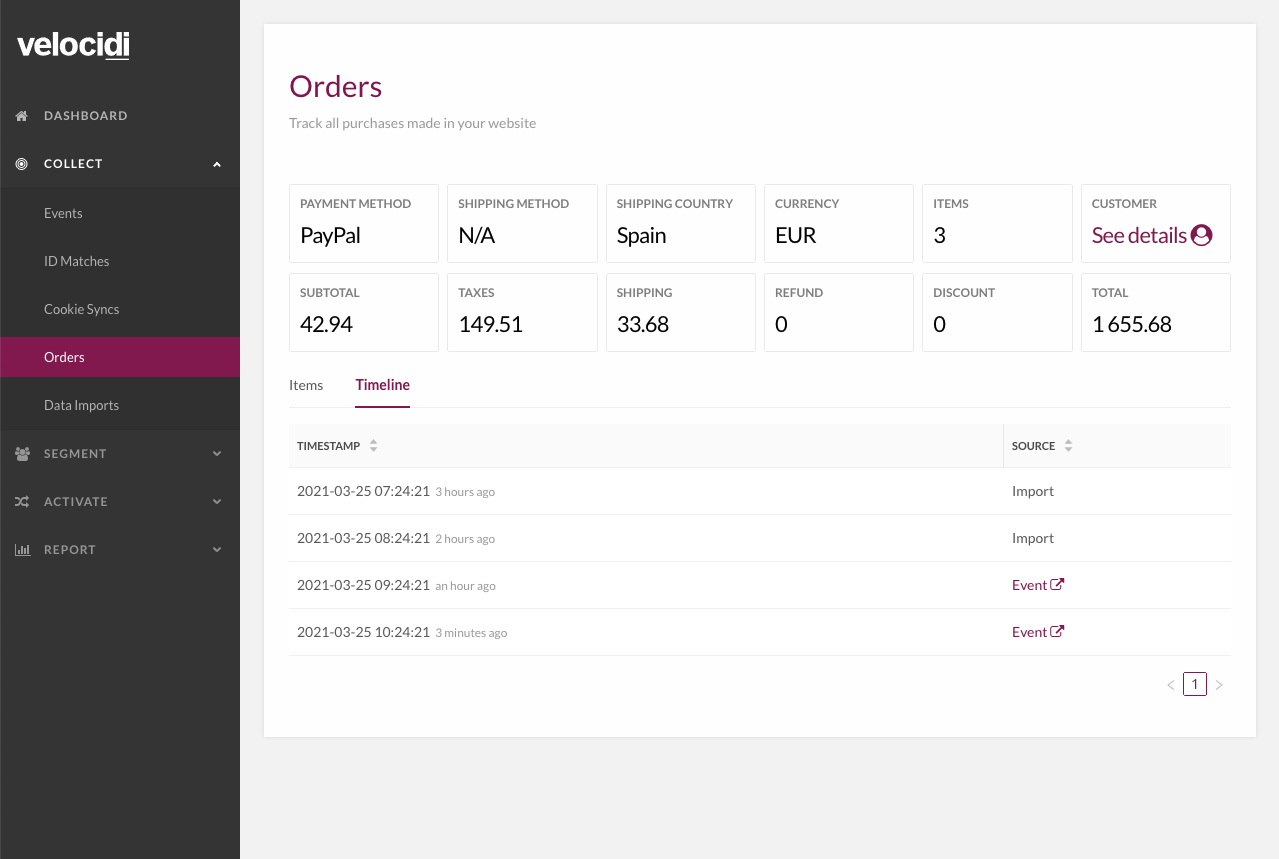
Changed
- Improved user experience while defining transformations for importing data from files. This includes renaming, copying, adding, or deleting fields.

Fixed
- Fixed a bug showing duplicate entries during segment creation, for example while segmenting by brand, if these used diacritics.
Release 21.3.1 - 2021-03-22
Changed
- Support additional status, for both orders and lineItems, for Shopify's imports. For orders,
authorizedandpartially_paidare now supported as status. For lineItems,partialandrestockedhave also been added. - For UI consistency and logic, the order of the
Reachcolumns in the Segments table has been switched -Reach (Last 28 Days)is shown beforeReach (All Time).
Fixed
- Fixed a bug preventing the total purchase amount from being shown in the UI, when navigating through the Collect -> Events dashboard.
- Fixed a bug that prevented editing entities, such as match providers, cookie sync providers, triggers and/or destinations) if their ID contained special characters.
- Fixed a bug that, for the creation of triggers was showing by default the complete list of destinations, even though some may not have been allowed to be associated with a given trigger type. For example, some Destinations can't have scheduled triggers, just reactive triggers. To ensure consistency within the product, a given set of rules was applied so that now, when in need to create a trigger of a given type, only the destinations that can be associated with it are listed to be chosen.
Release 21.3.0 - 2021-03-08
Changed
- Next purchase date prediction now leverages order events and historical imports. This allows bootstrapping the prediction model with historical data for increased accuracy.
- RFM and Customer lifetime value attributes take refunds into consideration, from both events and order imports. This ensures that user attributes reflect their order history, opposed to the previous behavior which considered only the original order event.
Release 21.2.1 - 2021-02-22
New
- Enable segmentation by
sizeandsizeSystemattributes, by adding support for both fields on the Velocidi order import CSV andorderPlaceevent schemas. - Javascript SDK support for observing a datalayer variable. Allows configuring a function to capture an event, when it is pushed to the datalayer, facilitating tagging websites. This will simplify the process of tagging a website if a client uses the datalayer, as we will only need one tag for all pages, which will capture all events we want, instead of one tag per each event we want to capture in a given page.
- While integrating with Facebook Conversions API, we can now filter events, by evaluating if they relate to the configured Facebook Pixel ID. Clients should request Velocidi to enable this feature, and provide the pixel ID in the attribute
customFields.fb_pixel_idof each event. Otherwise, all events are forwarded.
Changed
- Attribution report considers the attributable events of the previous 30 days for each conversion, opposed to the 90 days considered previously. This change will allow new clients to be able to generate attributable reports sooner, and make them significantly faster to compute, with minimal impact on report quality.
- Comply with Facebook Conversions API new version, by including the
action_sourceandevent_source_URLattributes on the events sent to the destination.
Fixed
- Allow the usage of special characters, such as accents, capitalization, spaces, and others to filter dropdows.
- Fixed a bug, in which email hashes were sent as external IDs, and external IDs as email hashes to Facebook Conversions API.
- Fixed an issue where raw emails were not being redacted in the dashboard.
Release 21.2.0 - 2021-02-08
Changed
Allow selecting multiple values from a filtered dropdown while creating a segment.
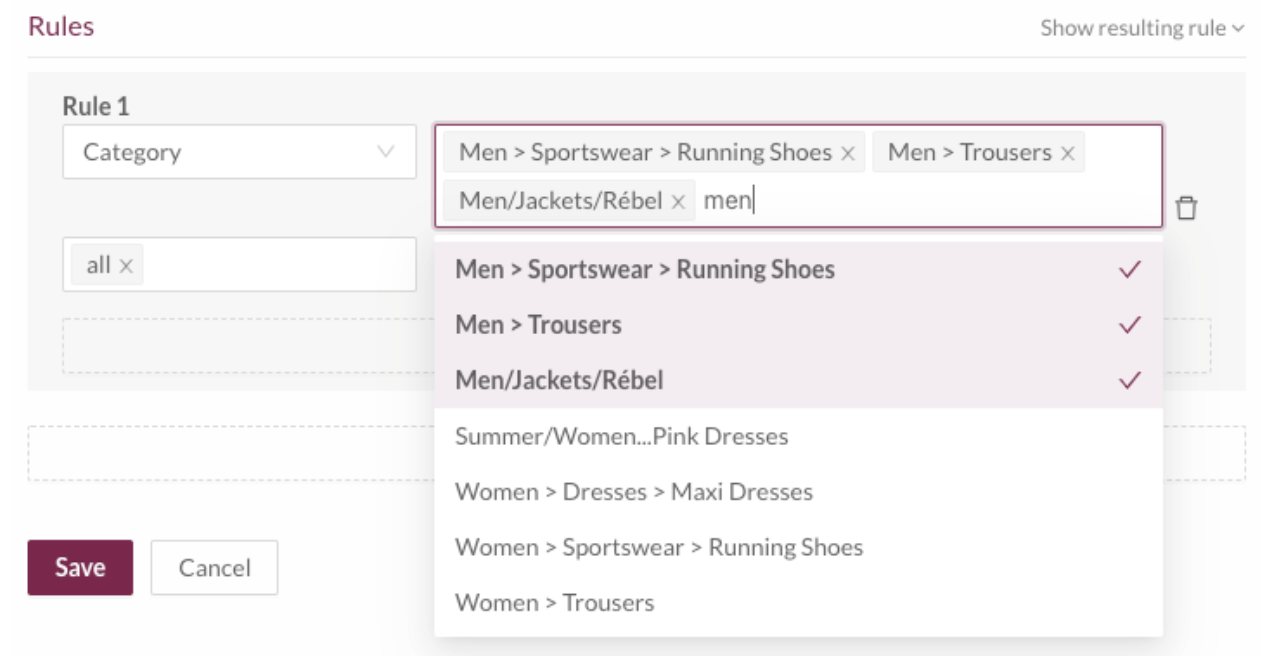
Fixed a bug with the creation and statistics of segments with a high number of rules.
Release 21.1.1 - 2021-01-25
New
- Additional data is sent to Facebook when using Facebook Conversions API. The
pageViewis mapped toPageViewon Facebook,productViewtoViewContent, andcheckoutStepandloginare sent as custom events. Additional IDs are also sent, namelyuser agent,fbc cookieandexternal ID(if available).
Changed
Fixed a bug that prevented the issue count on destinations to be shown in the UI, when many destinations were configured.
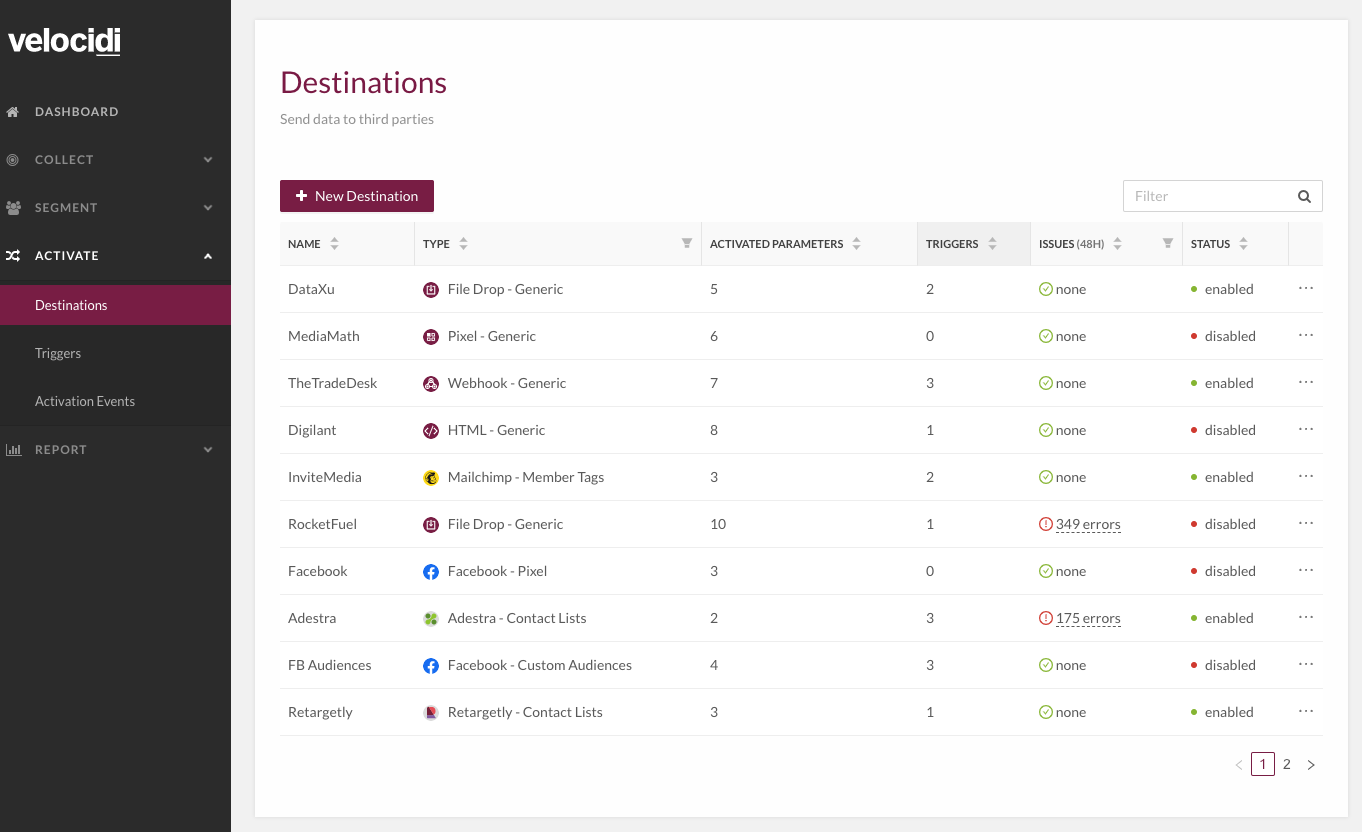
Release 21.1.0 - 2021-01-11
New
- Attribute generation regarding orders (
ordersTotal,ordersAvgandcompletedOrders) are generated using the new order storage. - A new Velocidi CSV schema for importing orders is available. This schema is a simplified version of the already supported Shopify schema. You can find an example file included in the offline imports documentation.
- Our product documentation has been updated to be more intuitive and faster to navigate.
Changed
Fixed a typo in our JavaScript source code for setting up the matching and activations, removing some invalid characters.
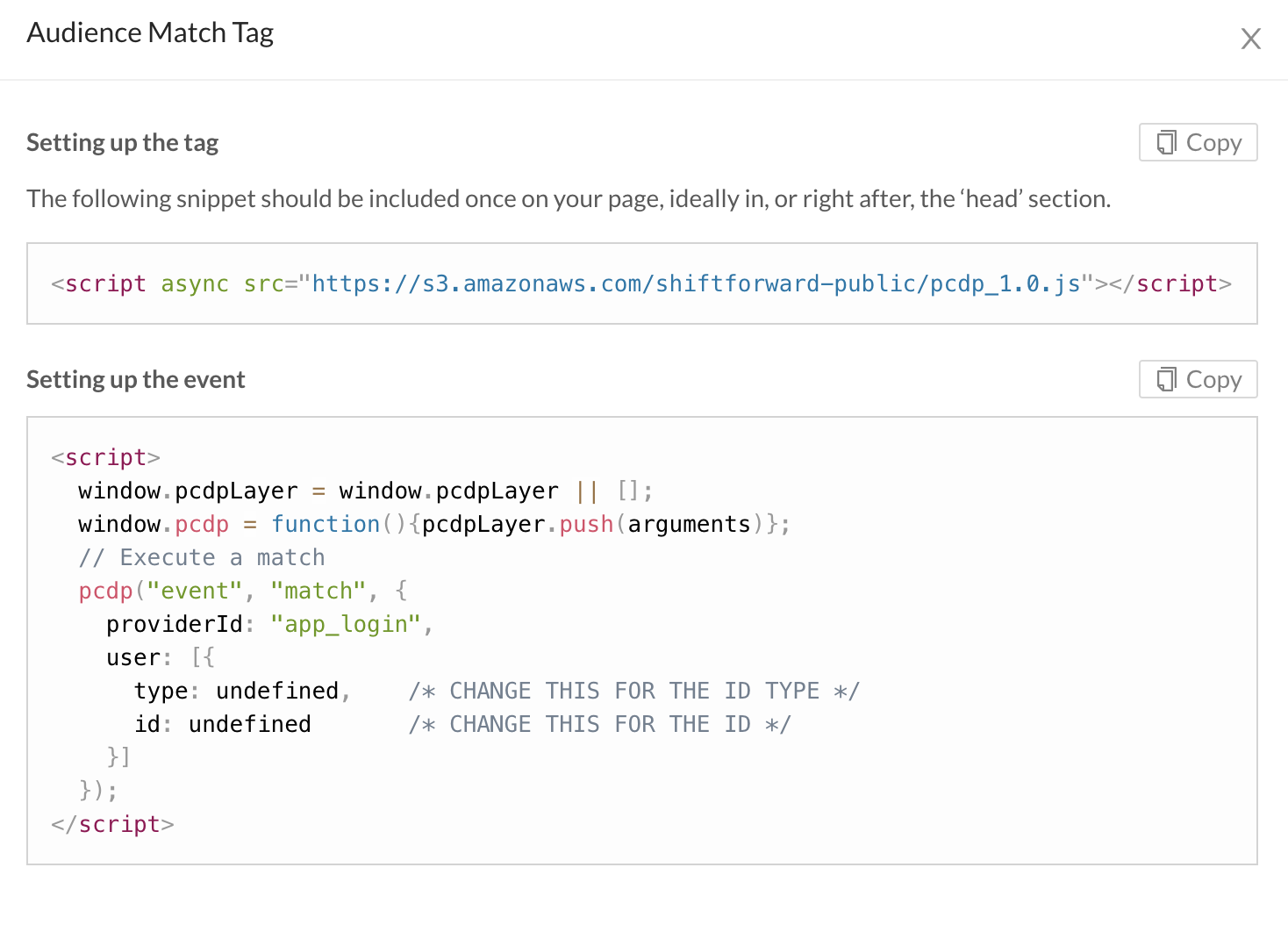
Removed
PaidSearchandSocialchannels from the Dashboard as the event types associated with them (adClickSearch/socialClick/socialView) were no longer being used.